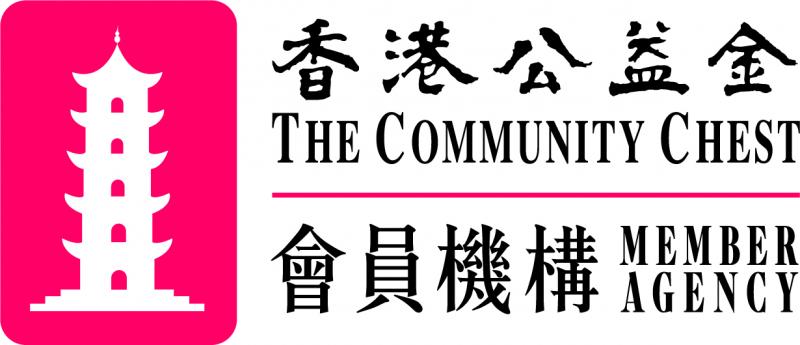Dietary Knowledge in Chinese Medicine
According to the theory in Chinese Medicine, daily diet can be managed through seasons and personal physique.
~ Seasons ~
Spring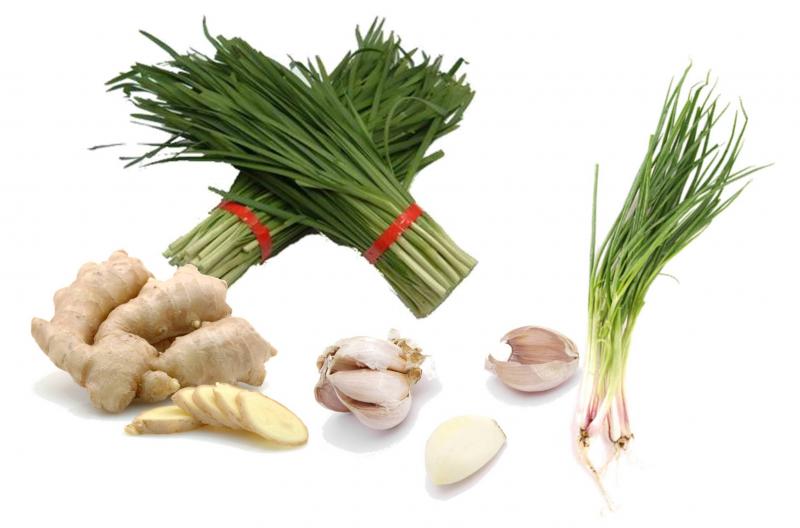
It it a season of renewal, growth and rebirth. In Chinese medicine theory, spring belongs to the element of WOOD which is the energy of possesses a huge of rising power. People ought to put an emphasis on nourishing Yang in spring and summer time. It is recommendable to increase sweet and pungent flavors in our diet. Examples of suggested foods are leeks, onions, garlic, ginger and etc. In order not to hurt the spleen and stomach, it is advisable to reduce the intake of sour flavors, raw and frozen foods in spring.
Summer
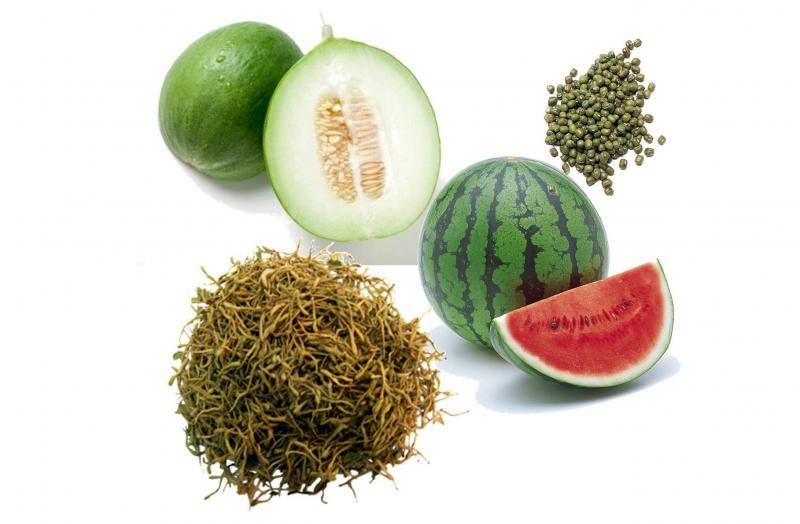
It belongs to the element of FIRE of which Yang expands to a maximum capacity. Summer is also a fragile period to hurt Qi of our body and therefore it is easy to get a cold. It is unadvisable to have many raw and frozen foods for the purpose of protecting our spleen and stomach and preventing from getting cholera and diarrhea. It is suitable for people to intake more delicate and digestible foods to relieve summer heat, to strengthen the spleen and replenish Qi. Examples of recommended foods are watermelon, luffa, wax gourd, green bean, honey suckle flower and etc.
Autumn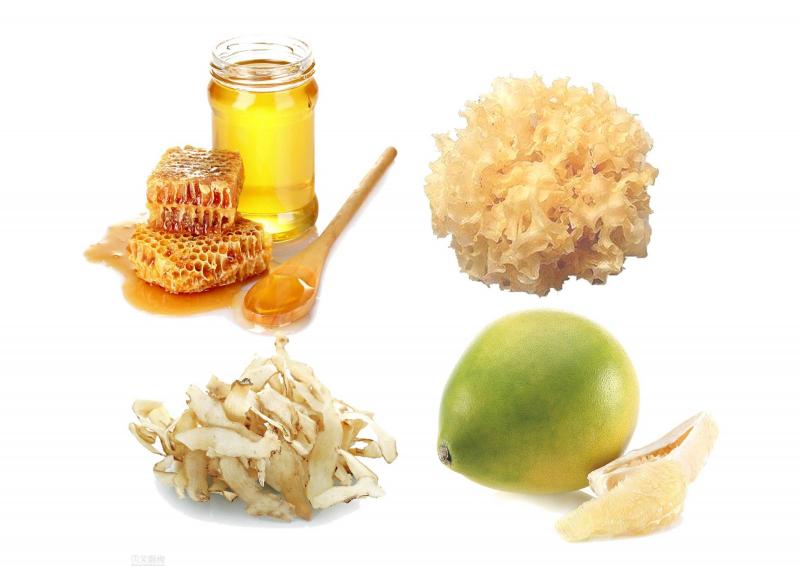
It is a season of fall in temperature and humidity. METAL is the energy of autumn whcih has a characteristic of turning inwards. Chinese medicine practitioners believe that enriching Yin and moistening dryness by eating foods such as honey, fragrant solomonseal, pomelo and snow fungus. And people should reduce the intake of some spicy foods.
Winter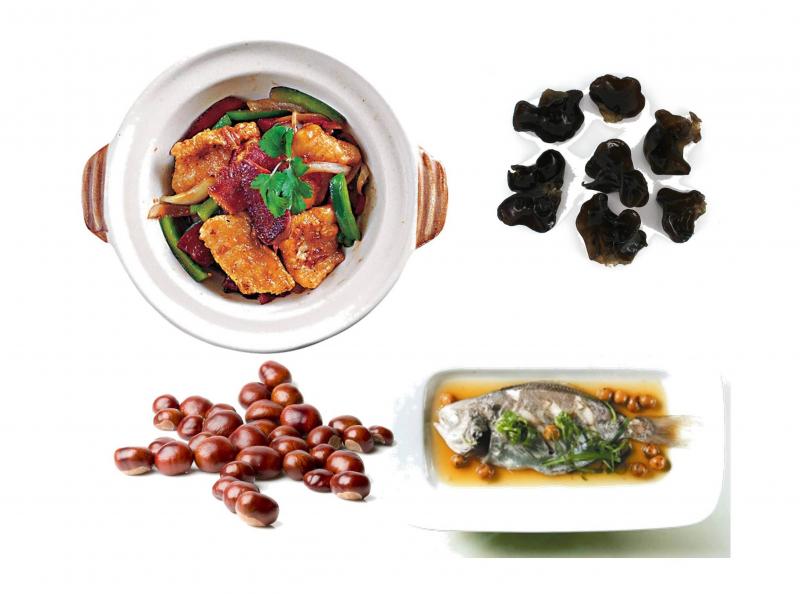
Winter is a period for people to have dietary supplements under a low temperature. It associated with WATER whcih is the time for people to subdue Yang. It is recommended to have more food with bitter flavors whereas to reduce salty flavors. Fishes, lamb, black fungus and chestnut are the examples of foods which help warm the kidney and the stomach. Chronically ill patients should have the supplements based on their physical and health situation.
~ Personal Physique ~
Everyone’s physique is different due to their inborn and congenital factors. According to Chinese medicine theory, we can separate people into deficiency of Yin, Yang, blood and Qi.
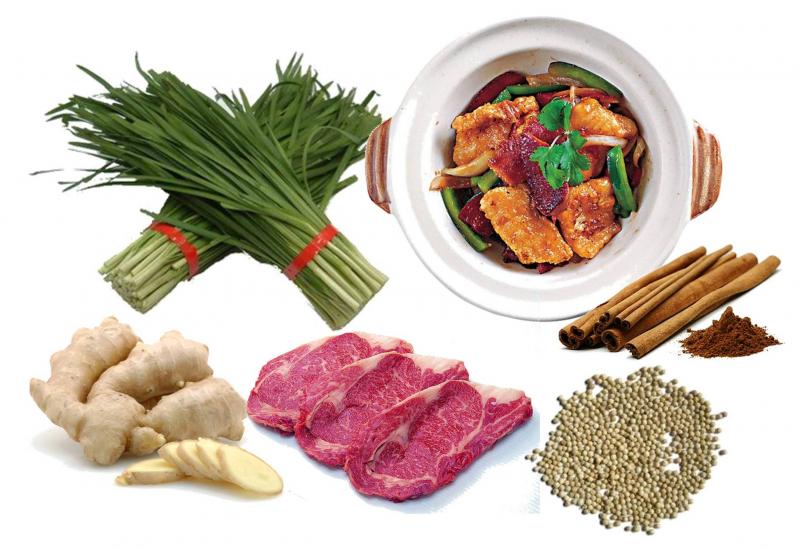 Yang deficiency:
Yang deficiency:
People with Yang deficiency is lacking of Yang to control Yin. Aversion to cold, cold limbs, exhaustion, tasteless mouth with absence of thirst, clear and abundant urine, white coating on tongue, sunken and slow pulse are the symptoms of those who lack Yang. It is recommanded to eat beef, lamb, ginger, leek, cassia cinnamon and pepper etc.
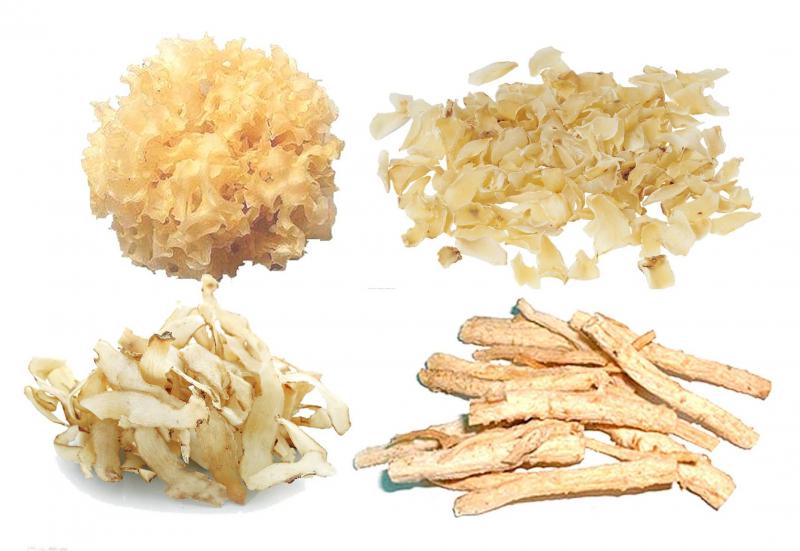 Yin deficiency:
Yin deficiency:
When Yin is deficient, it cannot control the Yang. People who lack Yin will have the below symptoms like emaciation, red cheek, dry throat, parched mouth, night sweats, tidal fever, feverish sensation of palms and soles, dry stools, red tongue with little coating, thread and rapid pulse. It is advised to eat snow fungus, coastal Glehnia Root, polygonatum odoratum and lily etc.
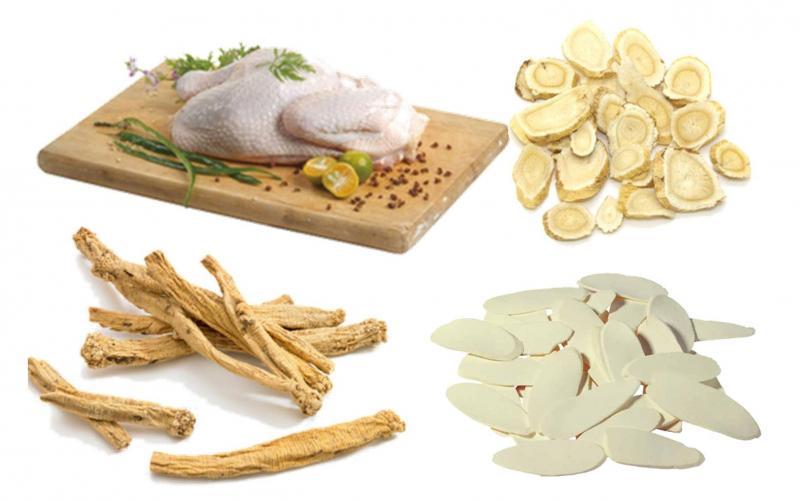 Qi deficiency:
Qi deficiency:
Functional activities of the human body will be comparatively low. Those who lack Qi will have the symptoms such as exhaustion, no desire to speak, spontaneous sweating, pale complexion, and diarrheato, tongue being pink or light red in colour, teeth-printed tongue and weak pulse. It is advised to eat chicken, codonopsis pilosulae, radix astragali and rhizome dioscoreae etc.
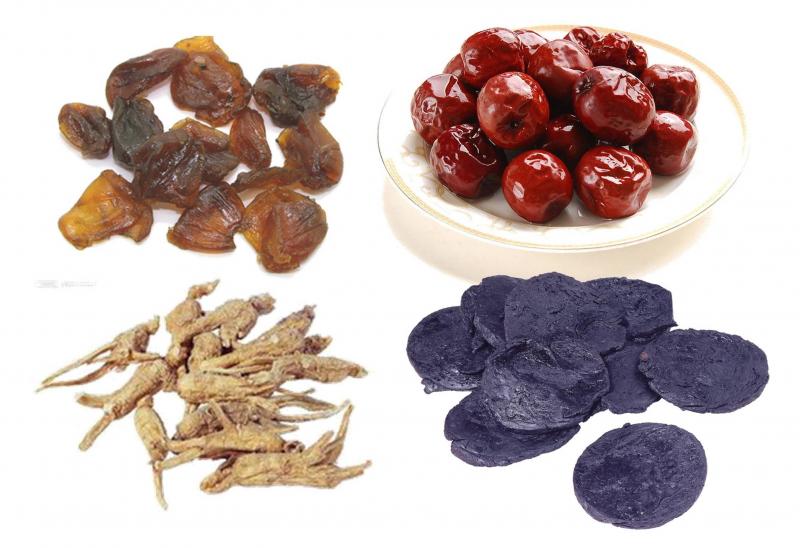 Blood deficiency:
Blood deficiency:
Those who suffer from blood deficiency will lead to a general debility. A lusterless complexion, pale lip, being dizzy, palpitation, scanty menstrual flow, pale tongue with white coating, thin or choppy pulse are the phenomena that will happen on those people. It is advised to eat dried longan prip, Chinese jujube, angelica root and radix polygoni multiflori preparata etc.
The above information is for reference only. For enquiry, please consult a Chinese medicine practitioner.

